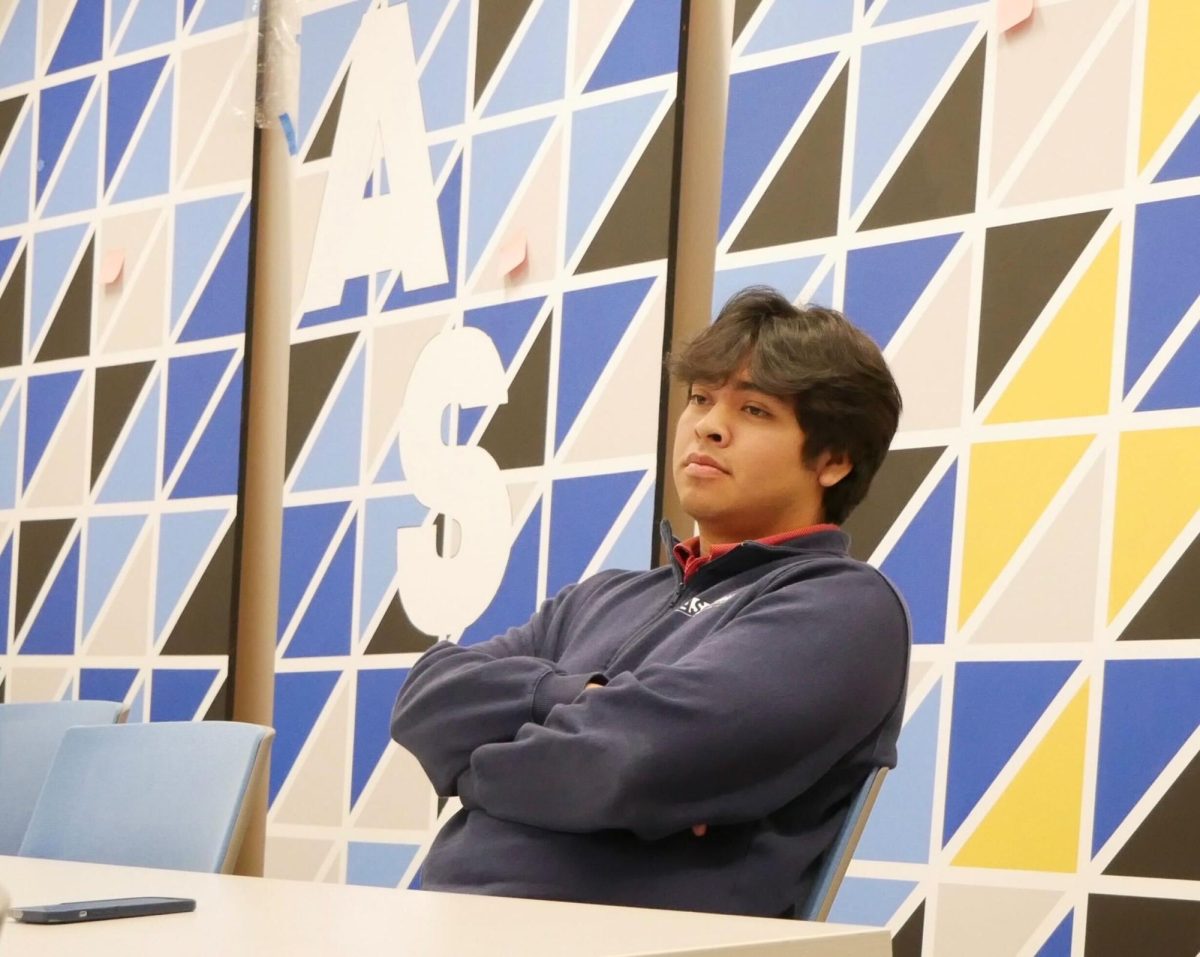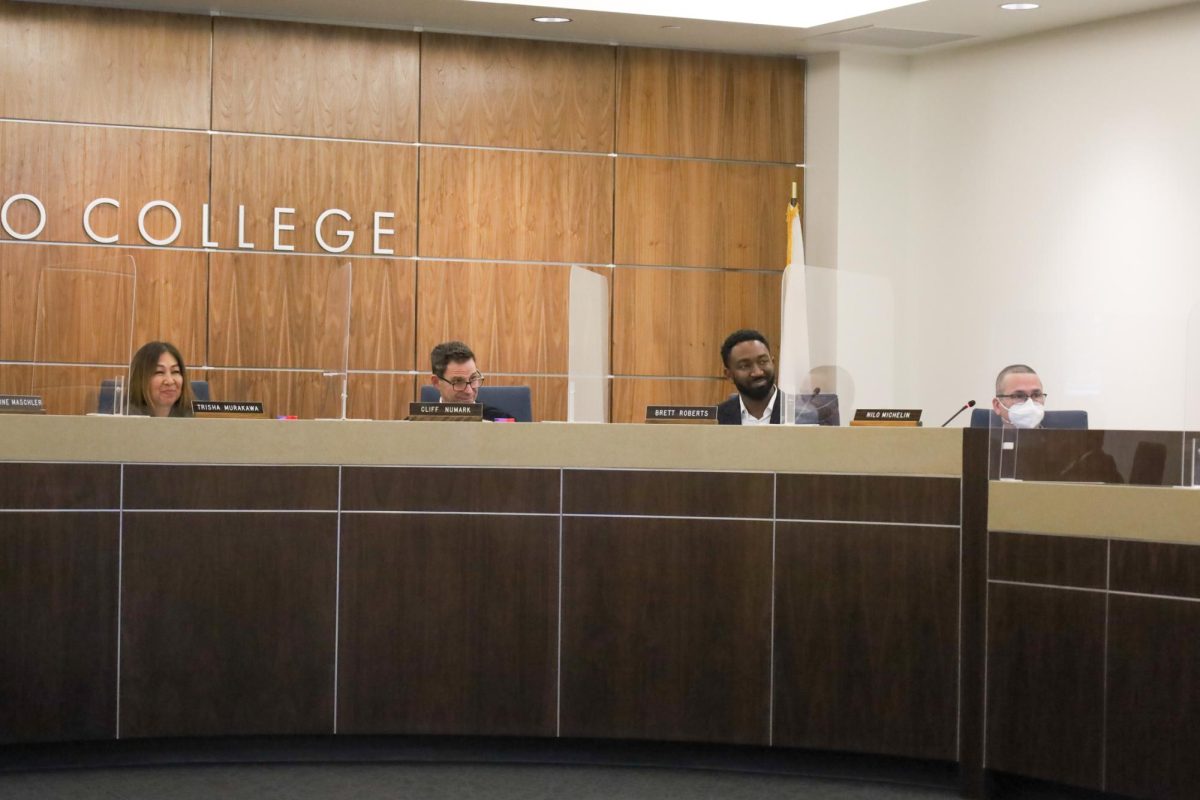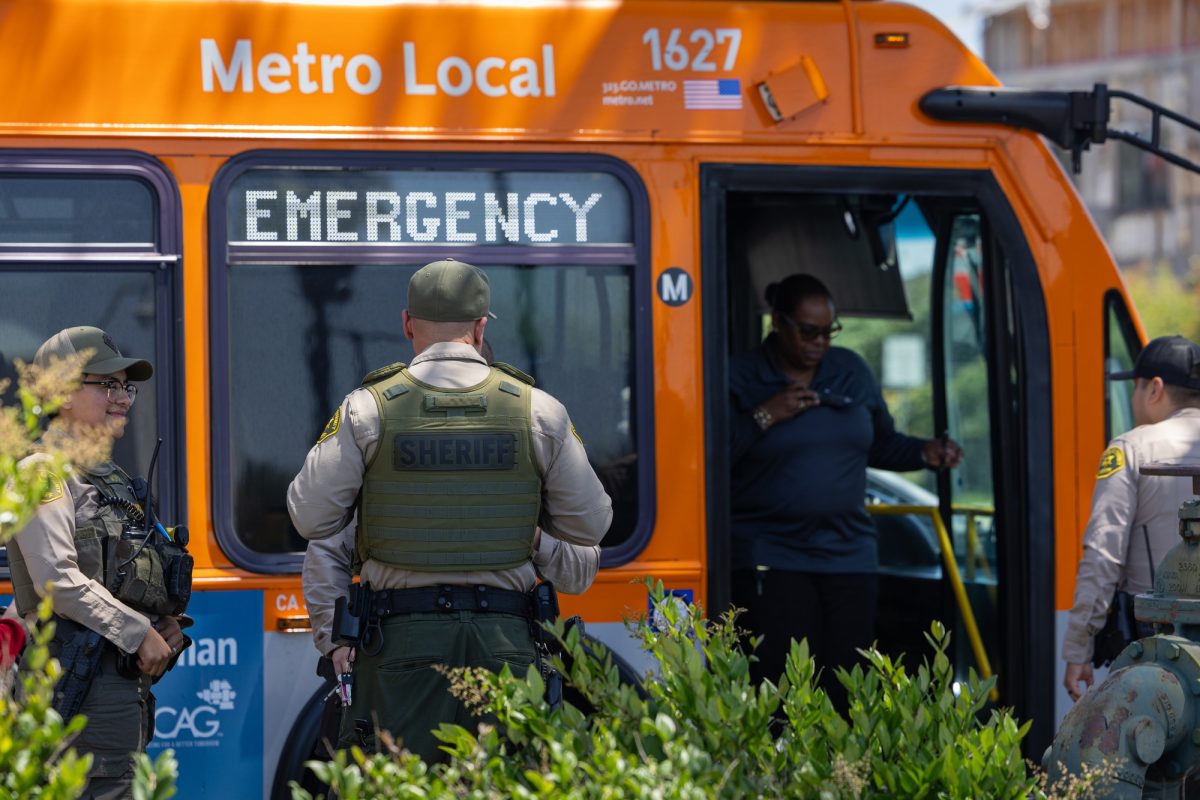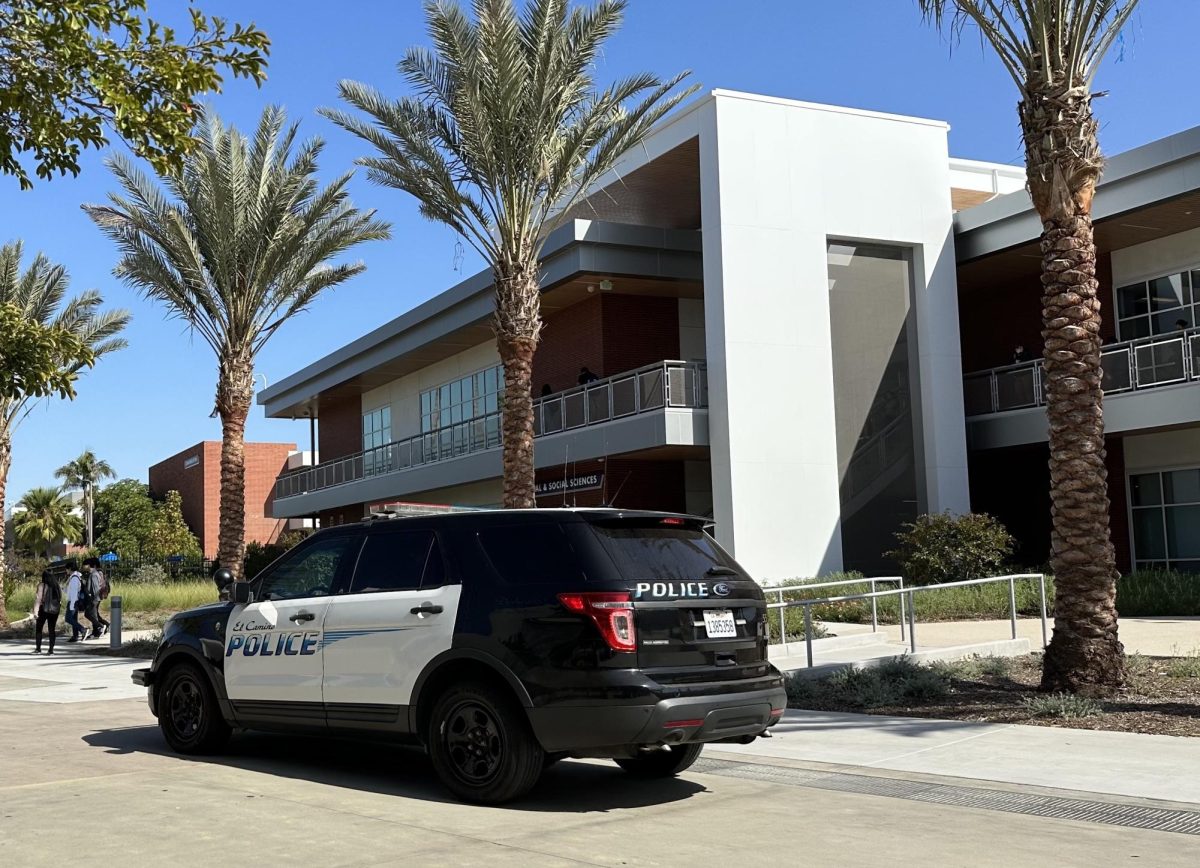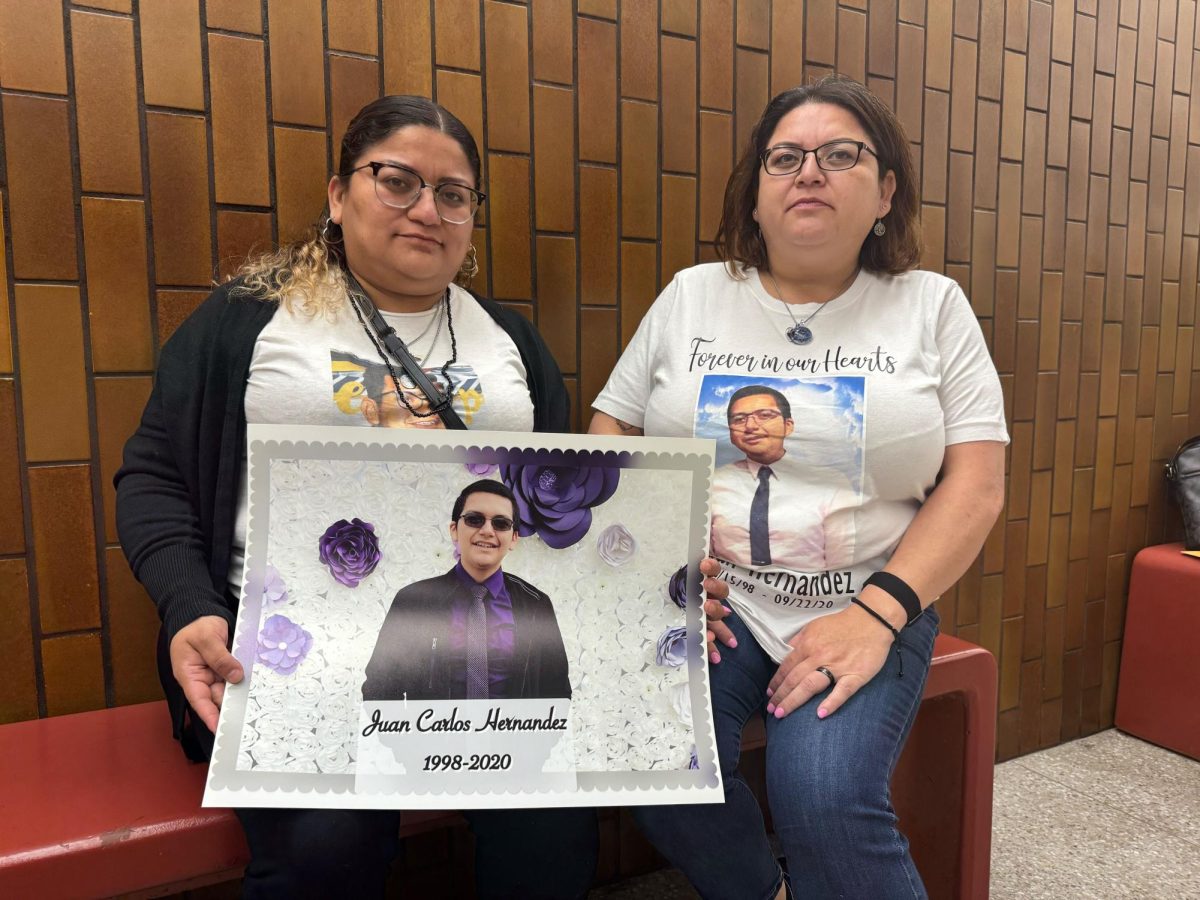Rising educational costs attract millions of students to community colleges every year because of lower tuition and book rates, EC students have encountered books written by faculty that either assist those in financial need or have slowly merged students into a lucrative industry.
There are about 20 faculty members currently selling their books or workbooks in the Bookstore. The pricing for these materials can be as low as $23.95 or extend all the way up to $115.95, according to bookstore records.
Gabriela Peraza, social work major and AB540 student, chose to attend a community college due to her immigration status and her unavailability to file for FAFSA. Peraza and her parents paid for her first two years at EC out of their pocket.
According to EC’s Board Policy 4045, Textbooks and Instruction, “The responsibility for the selection of textbooks rests with the faculty teaching the subject.”
Peraza recently became eligible to receive a Governor’s Fee Waiver. This assistance covers her courses, but does not include her books so she continues to pay for them out of pocket.
“Every semester, I try to get deals on books or see if I can purchase different editions to lower the cost,” Peraza said. “This semester, because I am not full-time, I paid about $400 for my books, but last year the price was almost $500.”
Communications professor Mark Crossman has gone on sabbatical this fall to work on his book, Burden of Proof. Sabbatical allows faculty members to file a petition to update their books and receive pay and full benefits, Claudia Striepe, co-Academic Senate president and librarian, said.
“Faculty textbooks are really cheap. We encourage them due to high cost,” Patrick Papetti, assistant book buyer, said. “There are huge benefits of having low cost textbooks. As far as cost, national books would not be as beneficial.”
Many faculty members said they purposely planned for their books to remain at a low cost for students facing financial struggles.
“Cost
is definitely an issue. I’ve kept my text soft cover and free of
pretty pictures,” Crossman said. “Also, other textbooks use examples that are generally outdated and not particularly interesting to our students.”
Communications professor Rosemary Swade said that she currently has four workbooks that are required for her class. The workbooks are varied among her six-class semester workload, and every class consists of about 30 to 35 students.
The four pack bundle is on sale at the bookstore for $115.95 but Swade added that each book earns her a one dollar profit. Swade makes an estimated $180 each semester from her students.
“It is very common among universities and many community colleges are doing it,” Swade said. “Actually, another faculty member here suggested that I write my own packages. They are very practical and useful outside of academia. I recommend my students not to throw them out.”
English professor Dr. Sue Bachmann coauthored Between Worlds with now retired professor Dr. Melinda Barth.
Their book is sold nationally and it is currently being used by many EC faculty members as well as other institutions.
“Between Worlds” assists students studying at Harbor College, Rio Hondo, Santa Barbara City College, Cal State Fullerton, Long Beach State, Cal State Sacramento, and Cerritos College among many others.
“Between Worlds” is being sold for $99 in the Bookstore. Bachmann did not disclose how much money she makes out of each book.
“You never know if professors are actually going to use the books in their classrooms or maybe just open them once,” Perraza added. “It is hard to tell but we still have to buy them and be prepared.”
Evelyn Uyemura, ESL and English professor, along with English professor Debra Mochidome together authored “Pronunciation Celebration,” a book made to assist ESL students with pronunciation and help them in expressing themselves in important issues such as euthanasia, Mochidome said.
“One thing that is very surprising to people is that the money that we make from the book is very, very little, like the book costs 60 bucks. Because 28 copies were sold, I got like 38 bucks,” Uyemura said. “It is not a retirement or ‘get rich quick’ plan.”
According to the National Association of College Stores, after all of the expenses are paid, bookstores make less than 4 cents in profit. Any extra money is then distributed among the school’s extracurricular activities and financial aid.
Ken Brown, vice president of the board of trustees, said that having so many books by our faculty on campus shows the strength of our team.
He added that having professors author so many books is a positive thing because if students have questions, they can always go directly to the professor to ask questions.
“Charging for your expertise is not such a bad thing,” Brown said. “Like, if a student has a talent for whatever it may be, they shouldn’t feel bad really for making money off that.”


